Kanji across cultures: From Kerala’s hearty red rice to Odisha’s sour porridge to Chinese congee

Mail This Article
It’s soft. It’s warm. It’s humble. It doesn’t sizzle or crunch or sparkle on a plate. But when life gets heavy – or your gut just needs a break – kanji quietly takes the stage.
In Kerala, it’s the go-to bowl of boiled rice that appears beside a dollop of pickle or a spoonful of payar. In Odisha, it’s a festival offering, gently spiced and soul-soothing. In Tamil homes, it ferments into a slightly sour, millet-based porridge that cools down the harshest of summers. In China, it transforms into congee and wears toppings like preserved egg and soy pork like a boss.
Same name, very different personalities. Yet they all share that soft, simmered soul—and a surprising secret: many versions of kanji are fantastic natural probiotics.
Let’s take a closer look at the many faces of this quietly iconic dish.
Kerala kanji: Matta rice, curd + kanthari, and a side of nostalgia
Kerala’s version of kanji is simplicity at its finest—red matta rice boiled till soft, served with green gram stir fry (cherupayar), coconut chutney, curd and a dash of bid's eye chilli. It’s the food of fast days, sick days, and “I-can’t-deal” days. A bowl that warms the stomach and slows down the world.
This version isn’t usually fermented (unless you are talking about Pazhamkanji aka day old kanji) —but it’s deeply rooted in Ayurvedic ideas of balance, digestion, and lightness. Think of it as food that’s easy on both the belly and the soul.
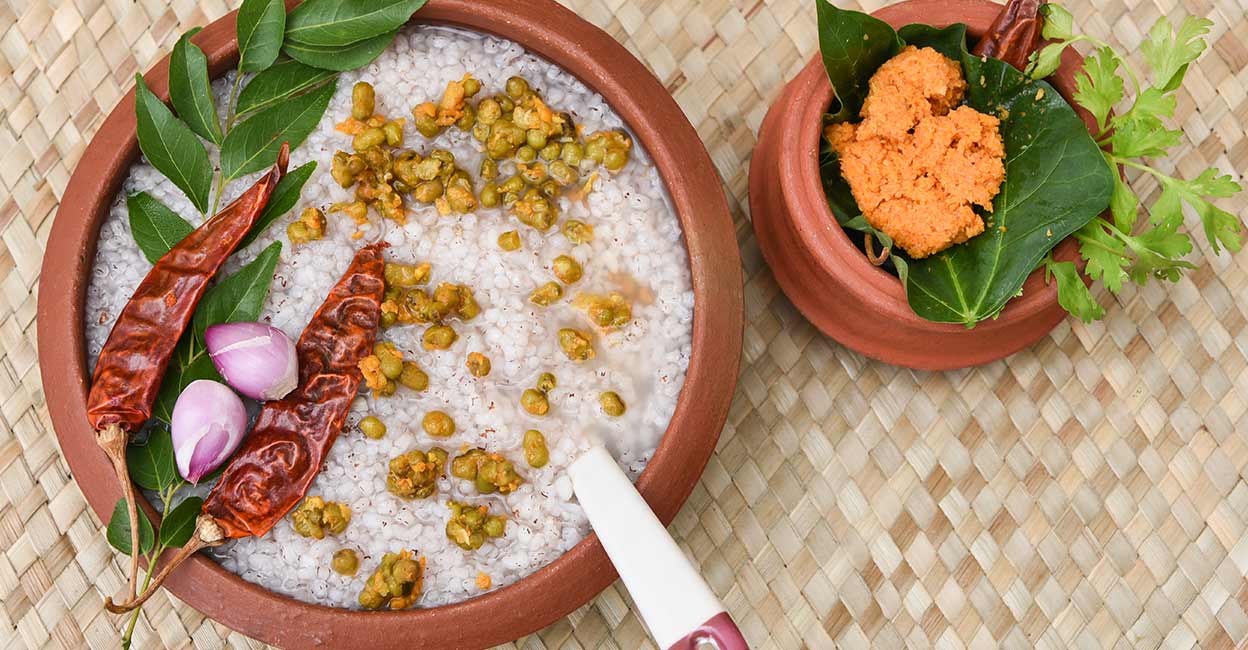
Odia kanji: Light, spiced, and sometimes fermented
In Odisha, kanji comes in a few forms. The festive version is a clear, gently spiced broth made with rice water and vegetables like raw papaya, served during Kanji Anla Navami.
There’s also a more everyday version: leftover rice soaked in water overnight and eaten cold the next day. Slightly tangy, definitely cooling, and loaded with gut-friendly bacteria. Served with mashed veg or chillies, it’s Odisha’s homemade antidote to hot summers and heavy meals.
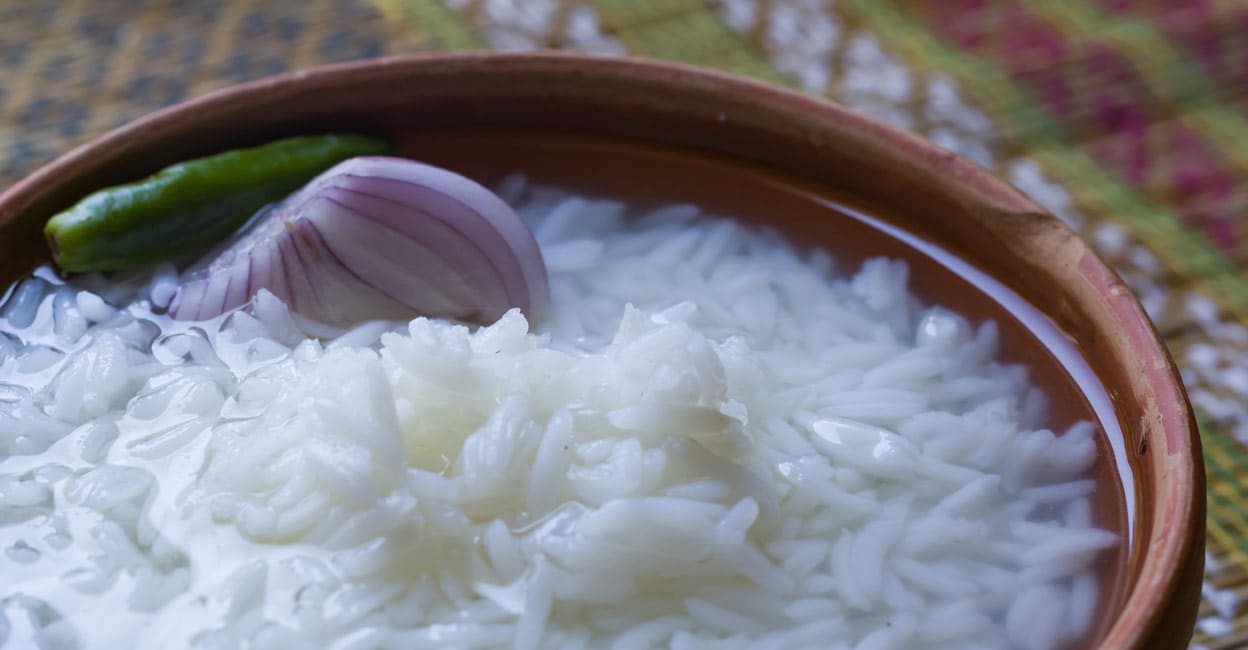
Tamil and Telugu kanji: Fermented and full of character
In Tamil Nadu, kanji stands for the rice gruel but often also means koozh—a thick porridge made from ragi or other millets, usually fermented overnight. It’s poured out cool and smooth, served with raw onions, green chillies, and sometimes a spicy chutney. It’s tangy, filling, and full of old-school nutrition.
In Andhra and Telangana, ganji is a hot, watery rice porridge, eaten with pickles or buttermilk. It’s light, comforting, and often served to kids, elders, or anyone needing a gentle meal.
China’s congee: Kanji’s global cousin with endless toppings
In China, kanji shows up as congee—a creamy, slow-cooked rice porridge that’s more of a blank canvas than a finished dish. You’ll find it with everything from shredded chicken to fermented tofu, peanuts to pork belly. Breakfast staple, sick-day classic, and endlessly customizable.
Like its Indian cousins, it’s often fed to people recovering from illness—and made in giant pots for big family mornings.
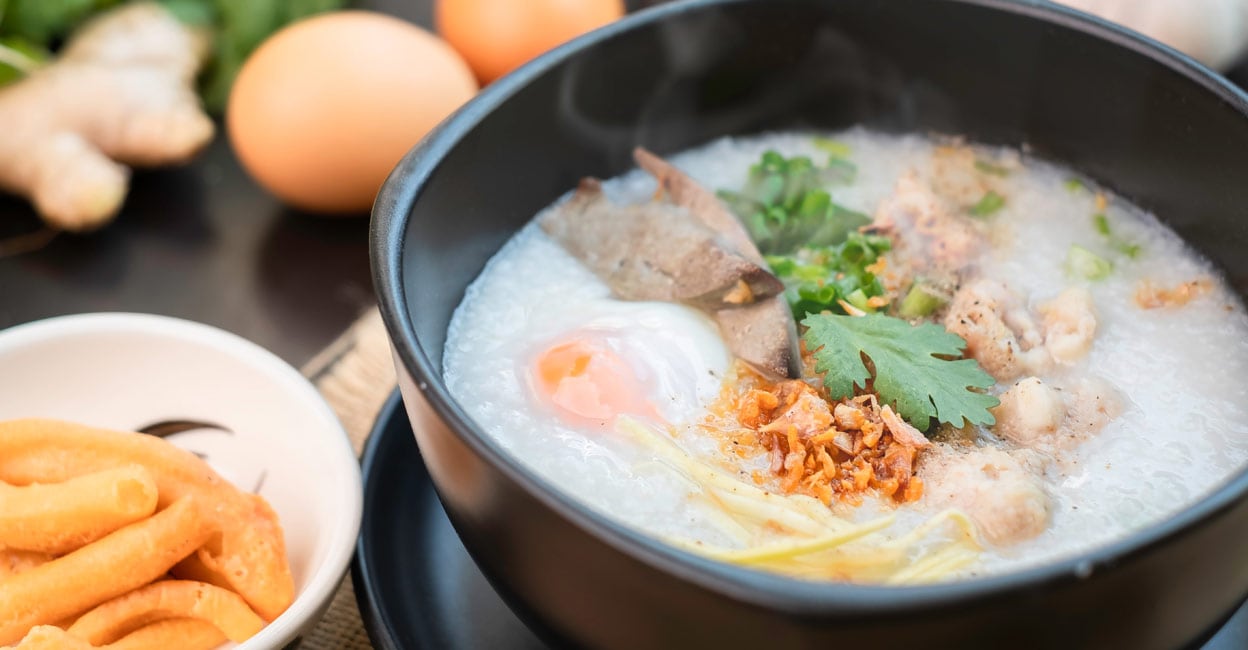
Sri Lankan kanji: Light, spiced, and coconut-laced
Sri Lankan kanji often features rice or lentils cooked in coconut milk, with garlic, curry leaves, and a hint of spice. During Ramadan, it’s a traditional iftar dish—easy on the stomach, rich in warmth and aroma. Variations include chicken or beef for a more filling meal.
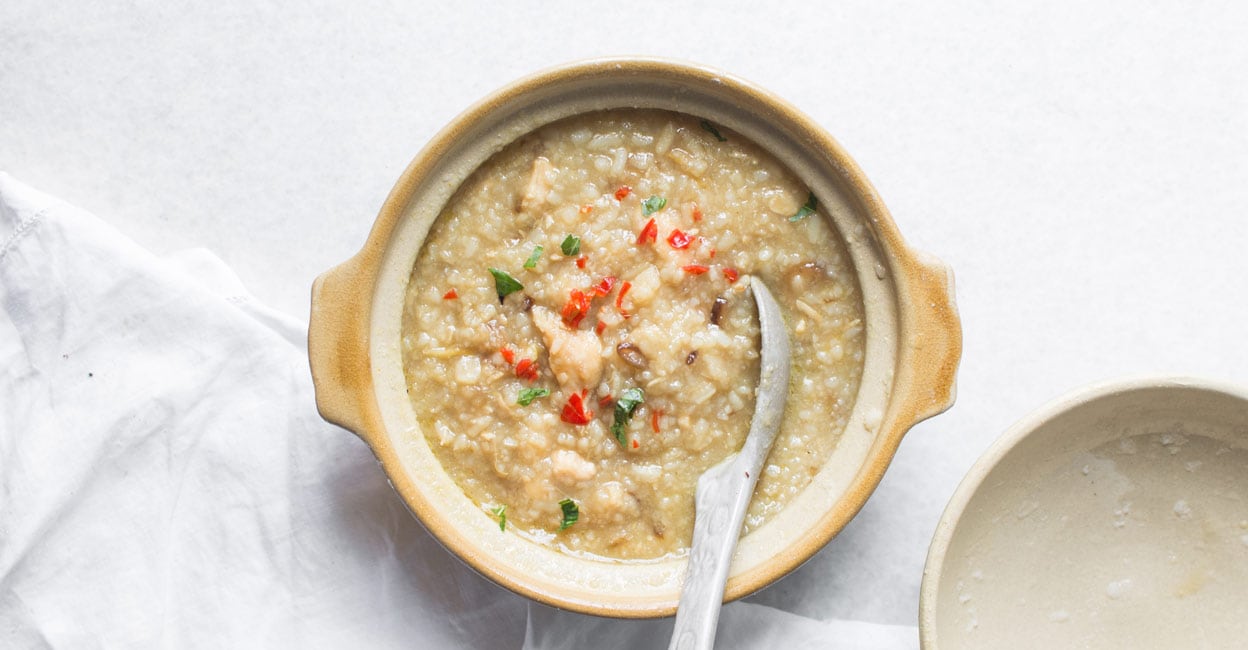
Kanji Rumbi: Indonesia’s spiced rice porridge with chicken
In Indonesia, kanji rumbi hails from the Aceh province and belongs to the wider family of bubur—rice porridge dishes loved across Southeast Asia. But this one is something special.
Cooked with rice, chicken, coconut milk, and an aromatic blend of spices like cinnamon, cloves, and star anise, kanji rumbi is traditionally served during Ramadan to break the fast. Rich yet gentle on the stomach, it’s often topped with fried shallots and herbs, making every spoonful both soothing and deeply flavourful.
The dish is said to have royal origins, once reserved for the sultans of Aceh—now, it’s a festive comfort food shared in homes and mosques across the region.
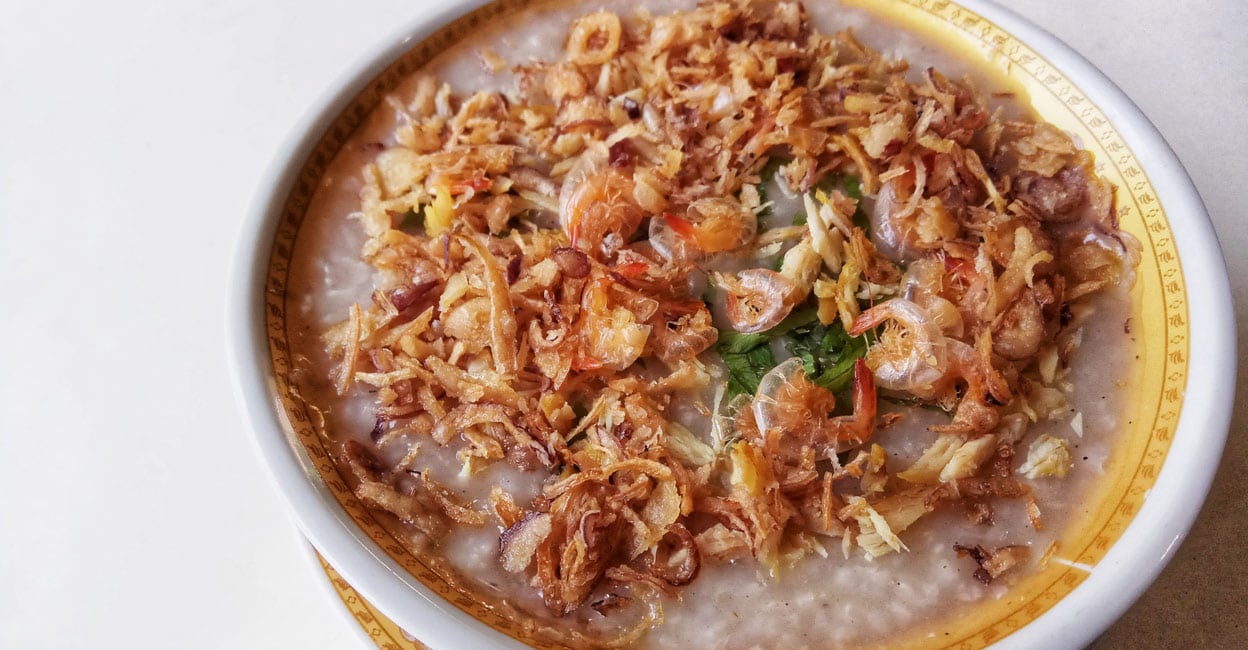
Kanji as probiotic: The quiet gut healer
While not all versions are fermented, many are—and that’s where the magic happens. Soaking rice overnight in water activates natural fermentation, introducing beneficial bacteria that aid digestion, boost immunity, and help cool the body from within.
Long before kombucha or kefir were cool, kanji was quietly fermenting in kitchens across India, doing the same job with zero fuss.
One name, a hundred stories
Kanji is what happens when food doesn’t try to impress—it just shows up and takes care of you.
It’s what grandmothers reach for when someone’s unwell. It’s what shows up during fasts and festivals, post-feast resets, and pre-dawn prayers. It’s in clay pots, steel tumblers, coconut shell ladles, and giant family vessels.
It’s not flashy, but it sticks with you. Spoon by spoon, region by region, it tells a quiet story of how simple food can travel far and mean everything.

